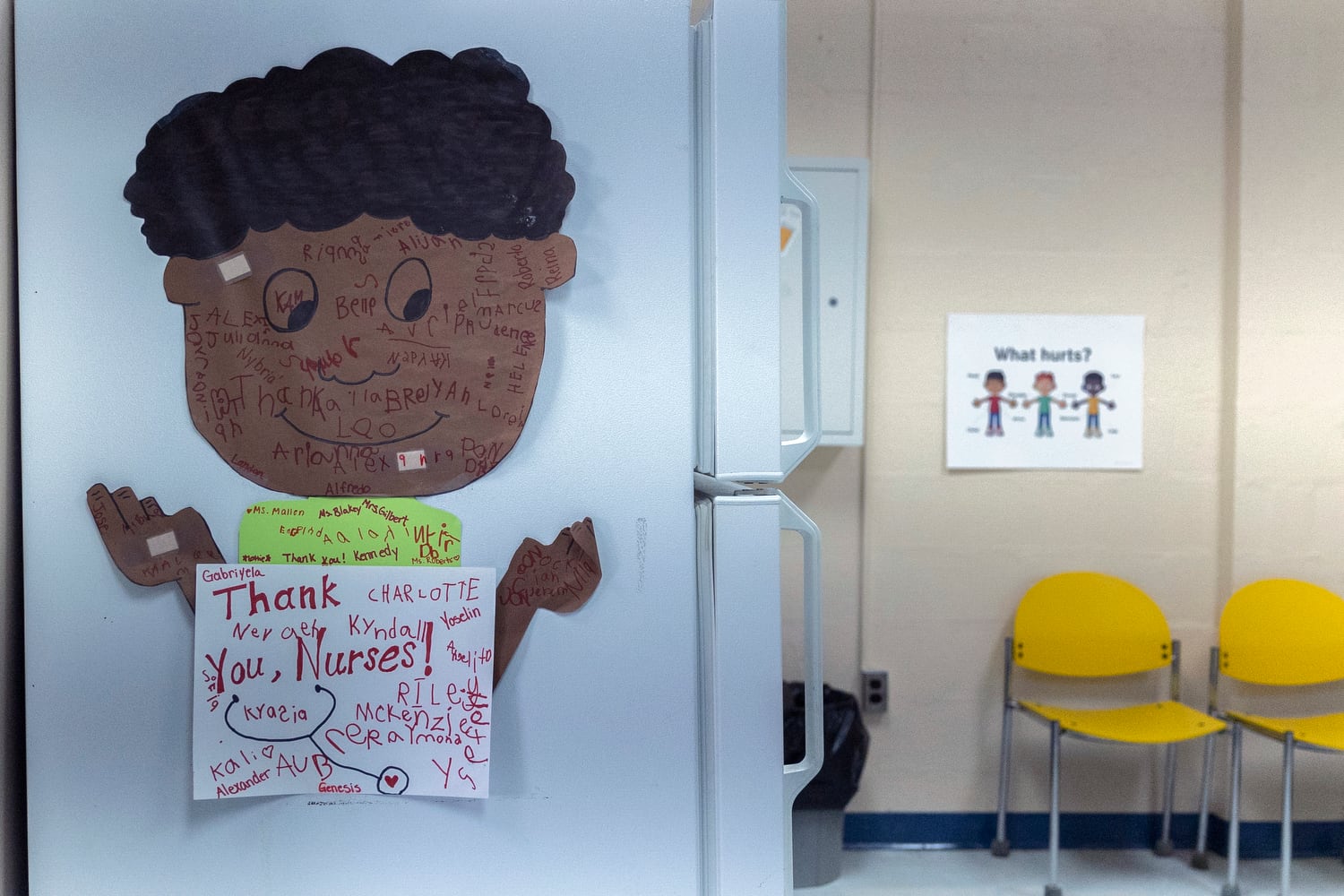The Detroit school district is set to launch new school-based health centers in the next three years to provide students and families medical resources and services they need to attend school regularly.
District Superintendent Nikolai Vitti shared details about the “health hubs” during a recent virtual public meeting on mental health and public safety.
“We want to try to address as many of the challenges that get in the way of students attending school every day, and just generally better support our parents who are facing extreme levels of poverty,” Vitti said at the June 21 meeting.
An intake person at each health hub will field questions and direct patients to dental, medical, and mental health services.
The Detroit Public Schools Community District will receive $2.76 million from the Ballmer Group to help launch 12 health hubs in high schools. The philanthropic corporation was established by former Microsoft CEO, current NBA team owner, and metro Detroit native Steve Ballmer and his wife Connie.
Vitti has said a dedicated hub in school buildings would help address chronic absenteeism — when students miss 10% or more of the school year. In the 2021-22 school year, Detroit’s chronic absenteeism rate was 79%.
The health hubs will differ from the school-based health centers that are already in place at 16 DPSCD schools, according to Vitti. In addition to providing physical and behavioral health services, health hubs also will provide dental services, vision and hearing screenings, and other health-related services.
They will be open to students at that school, family and community members, and K-12 students from surrounding schools.
Soon the health hubs also will include “parent resource centers” that provide legal services, eviction help, energy bill assistance, and access to winter coats, toiletries, and transportation to families in need, Vitti said.
At a school board committee meeting in January, Vitti cited health hubs as “our greatest need outside of the [school] budget, and the best use of philanthropic dollars.”
Ballmer’s charity previously has given to Michigan’s largest school district. In 2019, it donated $5.9 million to DPSCD to help launch its student data portal.
School health clinics envisioned as ‘hub of the community’
School-based health centers have been in Michigan since the 1980s, but the outbreak of COVID and increasing concerns around student mental health have increased their relevance across the state.
The Michigan Department of Health and Human Services funds over 230 school-based or school-linked health care programs. In the $21.5 billion K-12 budget for the fiscal year 2024, Michigan lawmakers allocated $33 million for school-based health centers, as well as an extra $45 million for facility upgrades of current centers.
But there has been pushback in some Michigan communities. The Grosse Pointe Public School System board in January tabled plans to create a school based health center, citing concern over potential legal and financial problems tied to the project. And a proposal to place a health clinic inside Oxford High School was canceled when a health care provider learned that a majority of community members did not support the proposal, noting a lack of trust with school officials and concerns about the cost of funding a clinic.
Typically, school-based health centers involve an agreement between local health care providers, such as a hospital system, a school district, and the state. All three parties share the costs.
Ascension, Henry Ford Health, and Institute for Population Health will be among the local health care providers running the health hubs, Vitti said. Those organizations will completely staff the physical and behavioral health services provided at each location.
Providing health care at neighborhood schools could be an invaluable resource, some Detroiters said.
Franklin Hugle, a junior at Cody High School, said he believes health hubs could be more convenient for students required to take physicals to participate in sports. Under the district’s plan, Cody would become a health hub for families and students in the northwestern part of the city.
Parent Shante Tyus, whose kids attend Cody, said she thinks a health hub would be helpful for children suffering from minor illnesses or those in need of early screenings for major diseases. As a teenager, Tyus’s older sister discovered she had Crohn’s disease, which caused her to miss multiple days of school. Early testing may help families and school officials in determining how to accommodate students with chronic health conditions.
Cody “is the hub of the community,” Principal Jason Solomon said. The school conducted eye exams earlier this year and provided glasses to about 125 students. Expanding those opportunities for medical care, Solomon said, would give kids and their families more reasons to come to school.
The first five health clinics are set to launch in the next school year, including the School at Marygrove, which will operate a health hub through the school’s P-20 partnership. The remaining seven schools are targeted for the 2024-25 and 2025-26 school years.
In selecting the 12 schools, Vitti said, the district ensured that every student would be within 3 miles of a hub.
The 12 health hub are proposed for:
- Central High School/Durfee Elementary-Middle School
- East English Village Preparatory Academy at Finney
- Southeastern High School
- Western International High School/Maybury Elementary School
- The School At Marygrove*
- Cody High School
- Denby High School
- Henry Ford High School
- Martin Luther King Jr. Senior High School
- Mumford High School
- Northwestern High School
- Osborn High School
- Pershing High School
* Marygrove will run its health hub in partnership with an outside organization and is not included in the 12-school total.
Ethan Bakuli is a reporter for Chalkbeat Detroit covering Detroit Public Schools Community District. Contact Ethan at ebakuli@chalkbeat.org.





